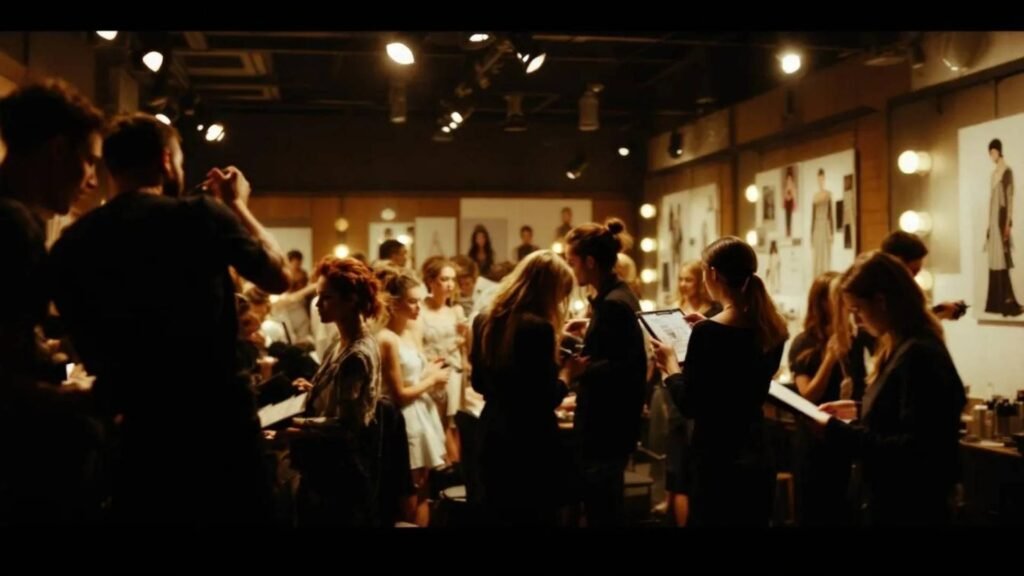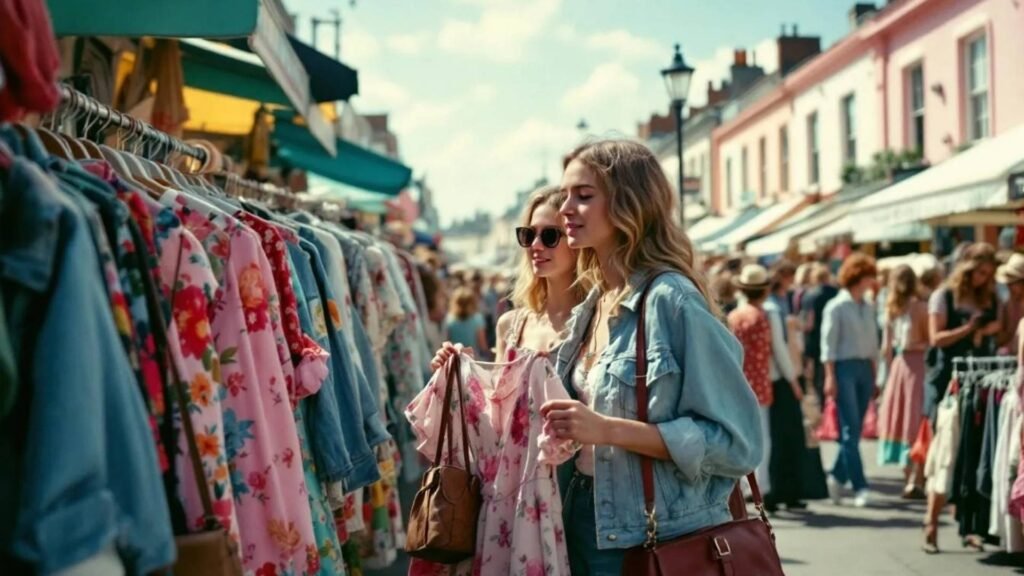In the world of fashion, there are few events that manage to feel both sacred and subversive. London Fashion Week (LFW) is one of them. Held twice a year—February and September—it is more than a showcase of seasonal trends. It’s an evolving conversation between art, politics, identity, and craftsmanship. In a city known for its contrasts, LFW thrives on tension: between old and new, tailored and torn, traditional elegance and unapologetic rebellion.
From Grit to Glamour: The London DNA
Unlike the pristine grandeur of Paris or the high-gloss elegance of Milan, London’s fashion scene draws power from its grit, edge, and cultural fusion. It’s the birthplace of punk, the epicenter of streetwear evolution, and the launchpad for avant-garde experimentation. The city’s diverse population and its rich history of political and artistic resistance feed directly into its fashion ethos.
Venues range from classical institutions like Somerset House or the British Museum, to gritty warehouses in Hackney Wick and industrial rooftops in Peckham. Each setting becomes part of the narrative—a stage for disruption, transformation, and statement-making
Emerging Talent, Global Impact
What makes LFW truly unique is its ability to elevate the unknown. The fashion world watches London not only for the giants—Burberry, Erdem, Simone Rocha, Roksanda—but for the breakout voices.
Graduates of Central Saint Martins, London College of Fashion, and Ravensbourne University arrive with collections that are raw, emotional, and conceptually daring. One season might feature gowns made from mushroom leather or upcycled netting; the next, sculptural knitwear inspired by ancient folklore or AI-generated embroidery patterns.
Designers like Priya Ahluwalia, Martine Rose, and Harris Reed challenge not only how we dress but how we define gender, heritage, and sustainability in the industry. Their shows often blur the line between runway and manifesto.
Runways Reimagined : The Digital Renaissance

In the aftermath of the pandemic, London became the first of the “Big Four” cities to fully embrace a digital format. What began as a necessity evolved into a reimagination of the fashion calendar. Designers now deliver collections through:
- Cinematic short films
- Augmented reality try-ons
- Virtual reality presentations
- Instagram-first lookbooks
- Interactive digital installations
Brands like Richard Malone and Matty Bovan have embraced these platforms, turning runways into full-blown artistic experiences, not just product showcases.
London Fashion Week’s digital presence, supported by the British Fashion Council, also made fashion more democratic and accessible. No longer confined to the front rows of VIPs, the fashion conversation expanded globally—reaching classrooms, small-town creatives, and emerging bloggers alike.
Sustainability is No Longer a Sideshow
In the past, sustainability may have been an afterthought at major fashion events. Not anymore. London Fashion Week is now a key stage for ethical fashion design, thanks to growing industry pressure and consumer awareness.
Events like “Positive Fashion” initiatives, and showcases by designers like Bethany Williams and Phoebe English, bring climate consciousness to the spotlight. Entire collections are designed using:
- Organic, biodegradable fabrics
- Post-consumer waste
- Plant-based dyes
- Transparent labor supply chains
- Localised, low-impact production techniques
The message is clear: beauty must now come with responsibility.
Beyond the Catwalk : The Street as Spectacle

What happens outside the shows can be just as impactful as what happens inside. Street style during LFW has become a global spectacle in itself—fueled by photographers, TikTokers, stylists, and culture watchers.
From the tailored suits of Savile Row alumni to the deconstructed thrifted outfits of East London creatives, London’s sidewalks become a runway of their own, where spontaneity and self-expression dominate. You might see a teenage designer in a coat they made from curtain fabric standing next to a supermodel in archival Dior—and both command the same attention.
The fashion culture here is inclusive, electric, and unfiltered.
Fashion As Dialogue, Not Just Display
Unlike fashion weeks that prioritize polish and prestige, LFW often feels like a conversation—sometimes even a confrontation. Themes explored are rarely superficial. Collections address:
- Gender fluidity and queer visibility
- Colonialism and identity
- Mental health and body autonomy
- Political activism and social justice
- Climate anxiety and future survival
In this city, fashion isn’t just worn—it is weaponized, questioned, deconstructed, and rebuilt.
Conclusion: London Sets the Pulse of Tomorrow
At its core, London Fashion Week is not just a calendar event—it is a cultural force. It mirrors the heartbeat of the city it calls home: diverse, bold, unpredictable, and always thinking ten steps ahead.
For anyone passionate about the future of fashion—whether you’re an aspiring designer, a fashion journalist, a conscious consumer, or simply a curious mind—LFW is where the present meets the possible.
Because in London, fashion doesn’t follow rules.
It reinvents them.

